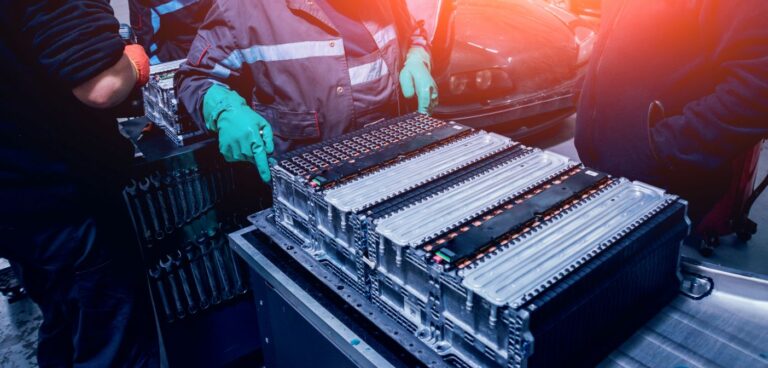Research into battery technology, EV supply chain and hydrogen vehicles is to be backed by over £30m of UK government funding, minister for investment Gerry Grimstone announced today.
Some 22 studies will receive a share of £9.4m through the Automotive Transformation Fund, including proposals to build a plant in Cornwall that will extract lithium for use in EV batteries, a plant to build specialised magnets for EV motors in Cheshire and lightweight hydrogen storage for cars and vans in Loughborough.
The government-backed Faraday Institution will also commit the first year of a £22.6m programme to continue its work to further improve the safety, reliability and sustainability of batteries.
The funding comes ahead of the phasing out of the sale of new petrol and diesel cars by 2030, as pledged in the government’s 10-point plan for a green industrial revolution.
Grimstone said: “To support that it is crucial we invest in research so we can power ahead with the shift to electric vehicles as we build back greener from the pandemic.
“The world leading research announced today showcases the very best of British innovation and it will support all stages of the automotive supply chain to make the switch to electric vehicles – from developing batteries, to exploring how to recycle them.”
This latest round of studies funded through the Automotive Transformation Fund includes the Trelavour Hard Rock Lithium scoping study, which will assess the feasibility of developing a sustainable UK supply chain through the construction of an extraction plant that will produce low-carbon lithium hydroxide from a hard rock source in St Austell.
The New UK Magnet Plant study has identified an approach to create a new UK magnet plant that will produce high-quality lightweight magnets for motors in EVs and the Hydrogen Storage for Vehicles study will assess the suitability of a lightweight, low-permeability storage tank developed by Haydale Composites Solutions for safe operation in vehicles.
The Faraday institution will use today’s funding to investigate the root causes of cell failure in lithium-ion batteries and how this can lead to fires, the environmental consequences of such fires and help develop a consensus around the best method of fighting lithium-ion battery fires.
It will also explore solid-state batteries, which could deliver improvements in safety and increase the distance an EV can cover between charges, as well as recycling and reusing batteries to increase the sustainability of the future automotive supply chain.





